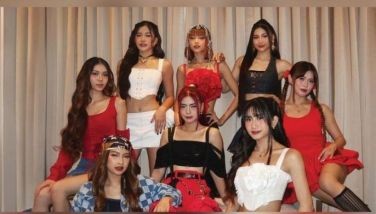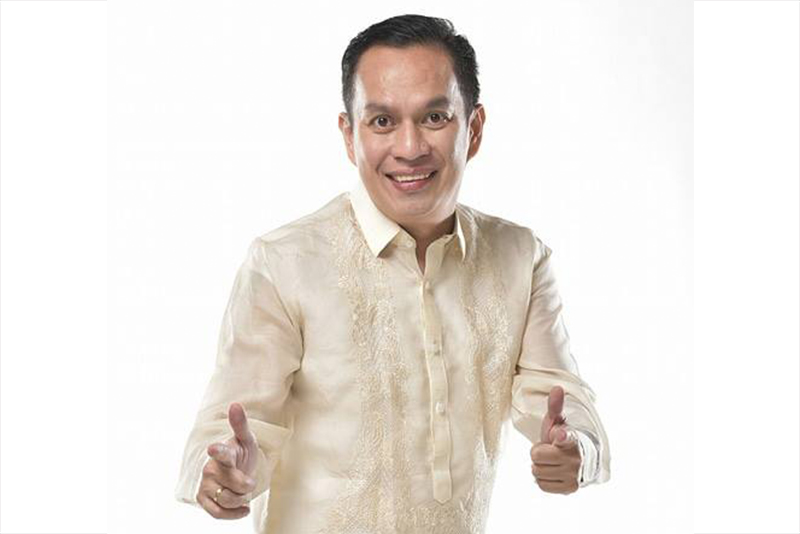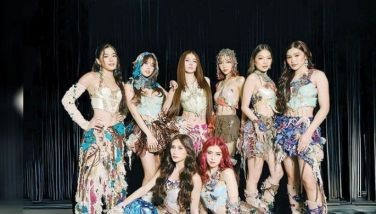Blue: The lure of the forbidden
December 1, 2002 | 12:00am
 The "bad boy" is a fascinating figure in the cultural landscape, whether he is of the highlands (Heathclif) or the plains (Batman), native and quick (Robin Padilla) or foreign and dead (James Dean). We are not talking about the very bad or the utterly vile – Iago or Richard III – but the figure "half-dark, half-bright": the choirboy with a wicked eye.
The "bad boy" is a fascinating figure in the cultural landscape, whether he is of the highlands (Heathclif) or the plains (Batman), native and quick (Robin Padilla) or foreign and dead (James Dean). We are not talking about the very bad or the utterly vile – Iago or Richard III – but the figure "half-dark, half-bright": the choirboy with a wicked eye.
It takes some nerve and as much verve to be able to sport a bad attitude without tipping the moral scales completely off balance – to taste the fruit, as it were, without getting expelled from Eden. When such transgressions are done tastefully, and – very important this – when the transgressors are good looking, we are often impressed.
Call it the lure of the forbidden. Bad boys break the rules, rules which ensure the survival of society but which also limit our actions in society. As they are projections of our own unarticulated (because forbidden) desire, they need be good looking. Call it also the outcome of a socialization process that makes babies of boys and nuns of girls. When spoiled brat (assuming that he is cute) meets perpetual virgin, what is the likelihood of sparks flying?
Whatever the validity of those hypotheses – and I submit that they are amateur hypotheses – the appeal of the risqué seems to be operative in boybandlandia, considered by many critics and musicians as an antiseptic, and hence, lifeless region in the map of popular music. Bad boys among boy bands? Admittedly, they are few, but they exist; and it is their "badness" – a good so rare in the boy band market – that is their unique selling proposition. Boy bands, after all, are made up of little men/grown-up boys, so that the logic behind the attraction for boys with a bad attitude applies also to them. Thus, East 17, Five, and now Blue. Eminem it is not, but neither is it Barry Manilow.
The bad-in-good is what we hear in the group’s second album entitled One Love. The boys bend the rules ever so slightly, but bend them enough to make an impression. Consider, for instance, the opening lines of She Told Me:
There was a girl I knew. She was more than beautiful.
She had a mind of her own, five foot eight or more.
She was a real wild child, and nothing could hold her back.
She was my sister’s friend, so now you know where it’s at.
Later, the persona says:
It was one of those times way back in the day.
She was at my door with a smile across her face.
I said, "My sister ain’t home. She’s gone out for a while."
She said, "That’s cool with me. That’s the reason I came by."
Whatever else the song is, it is an articulation of an adolescent fantasy – not quite X-rated to be sure, but certainly PG.
More interesting is the case of Don’t Treat Me Like a Fool. The persona’s expostulations are punctuated by expletives, in typical bad-boy fashion:
It’s been hard enough for me getting over you.
Darling, please don’t treat me like you do.
I’ll be damned if I am gonna let you,
Damned if I don’t forget you.
So please don’t treat me like a fool.
However, despite his avowal that "I am done with tears and there are no regrets," the music itself and the last verse hint that the persona is not done with crying. The bad boy quivers; he reveals a soft side – and very few things about boys, I believe, are more disarming than that.
When the diction is devoid of irony, the sentimentality is undercut by the uptempo melody. Such is the case of Flexin’, Ain’t Got You, You Make Me Wanna, and the current hit One Love. This duality of sensibility is perhaps what makes Blue (oxymoronically) an "alternative boy band."
Like the group’s first album (All Rise), One Love is predominantly rhythm and blues. But it is here and there interspersed by other musical types: club, pop, hiphop, soft rock. There is even a duet with Elton John (Sorry Seems to Be the Hardest Words), reportedly going to be the group’s next single. However one classifies the album, it certainly isn’t monotonous.
One may protest, however, that it isn’t an advance from the group’s first album All Rise. It may even be stated that the emerging Blue sound (going by the group’s singles releases) is predictable. In fact, we can almost come up with a Blue prosody: a one-note heptasyllabic line, with a caesura before the last two beats. Observe:
1. If you like my style, // cóme ón. (She Told Me)
2. For the mother’s pride – // óne lóve. (One Love)
We note a variation in the rhythm in Fly By: System up and the tôp dówn. Ultimately, however, the refrain reverts to: Hands high when we flái [fly] bái [by]. In All Rise, the caesura occurs later, but it, too, ends with two beats: One for the money and the // frée ríde. Have we been taken for a ride?
Maybe, but as nothing is seriously broken for now, nothing need be amended. The cracks might show in the third album, but that particular edifice has yet to be built. If the hypothesis holds that bad boys are really in the end good (for the business, for our psyche), then we may expect it, along with its improvements on this one, soon. For now, we can sing along with Fanny Brice, who certainly was not a stranger to bad boys in her prime: I’d rather be blue thinking of you, / I’d rather be blue over you, / than be happy with somebody else.
BrandSpace Articles
<
>
- Latest
- Trending
Trending
Latest
Trending
Latest
Recommended





























